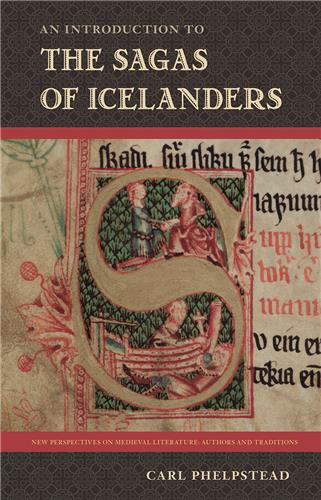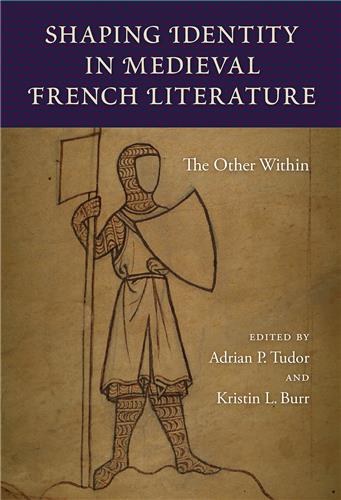Signs That Sing
Hybrid Poetics in Old English Verse
Heather Maring
Hardcover: $74.95
“Maring has provided a method as well as a model to following in understanding the richness of the Old English poetic corpus, one that elucidates its oral, literate, and liturgical dimensions.”—Modern Philology
“Maring strikes out into wholly new territory. . . . Demonstrating repeatedly the hybridity of a poetic corpus that derives much of its meaning from the fusion of oral themes, literate hermeneutics, and ritual performances, Signs that Sing makes a valuable contribution to the study of Old English poetry.”—Speculum
“Offers a broad sampling of poetic delights, enabling the reader to marvel anew at the aesthetic complexity of some of Europe’s oldest vernacular verse.”—Medieval Review
“A critically sophisticated leap forward in the study of early medieval literature, Signs That Sing issues a bold challenge to long-held preconceptions about the relationships underlying Old English poetry between past and present, pagan and Christian, and oral and literary.”—Joseph Falaky Nagy, author of Conversing with Angels and Ancients: Literary Myths of Medieval Ireland
“Maring sidesteps simplistic oral versus literary schools of thought as she considers Old English verse as the product of an emergent hybrid form, representing a fusion of native poetics and Christian beliefs and practices. A welcome contribution to oral poetics and the understanding of the earliest period of English literature.”—John D. Niles, author of The Idea of Anglo-Saxon England 1066–1901: Remembering , Forgetting , Deciphering , and Renewing the Past
“Elegantly shows how the elements of oral poetry continued to inspire the authors of Old English verse long after their conversion to Christianity. Far from being antiquarian relics, the themes of oral verse joined with learned exegesis and ritual performances to form a rich source of metaphorical meaning in Old English poetry, which this book brilliantly opens up to modern readers.”—Emily V. Thornbury, author of Becoming a Poet in Anglo-Saxon England
In Signs That Sing, Heather Maring argues that oral tradition, ritual, and literate Latin- based practices are dynamically interconnected in Old English poetry. Resisting the tendency to study these different forms of expression separately, Maring contends that poets combined them in hybrid techniques that were important to the development of early English literature.
Maring examines a variety of texts, including Beowulf, The Battle of Maldon, Deor, The Dream of the Rood, Genesis A/B, The Advent Lyrics, and select riddles. She shows how themes and typescenes from oral tradition—devouring-the-dead, the lord-retainer, the poet-patron, and the sea voyage—become metaphors for sacred concepts in the hands of Christian authors. She also cites similarities between oral-traditional and ritual signs to describe how poets systematically employed ritual signs in written poems to dramatic effect. The result, Maring demonstrates, is richly elaborate verse filled with shared symbols and themes that would have been highly meaningful and widely understood by audiences at the time.
Heather Maring is assistant professor of English at Arizona State University.
- Sample Chapter(s):
- Excerpt
- Table of Contents
Offers a broad sampling of poetic delights, enabling the reader to marvel anew at the aesthetic complexity of some of Europe’s oldest vernacular verse.
--Medieval Review
Maring strikes out into wholly new territory. . . . Demonstrating repeatedly the hybridity of a poetic corpus that derives much of its meaning from the fusion of oral themes, literate hermeneutics, and ritual performances, Signs that Sing makes a valuable contribution to the study of Old English poetry.
--Speculum
Offer[s] well-informed, in-depth arguments.
--Times Literary Supplement












